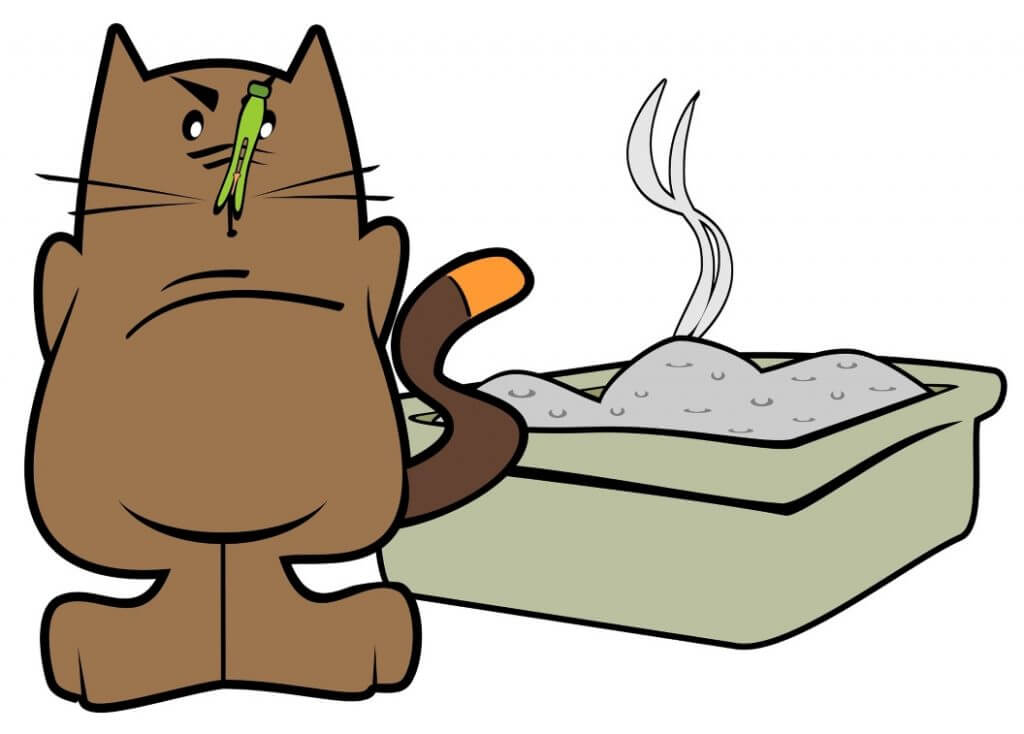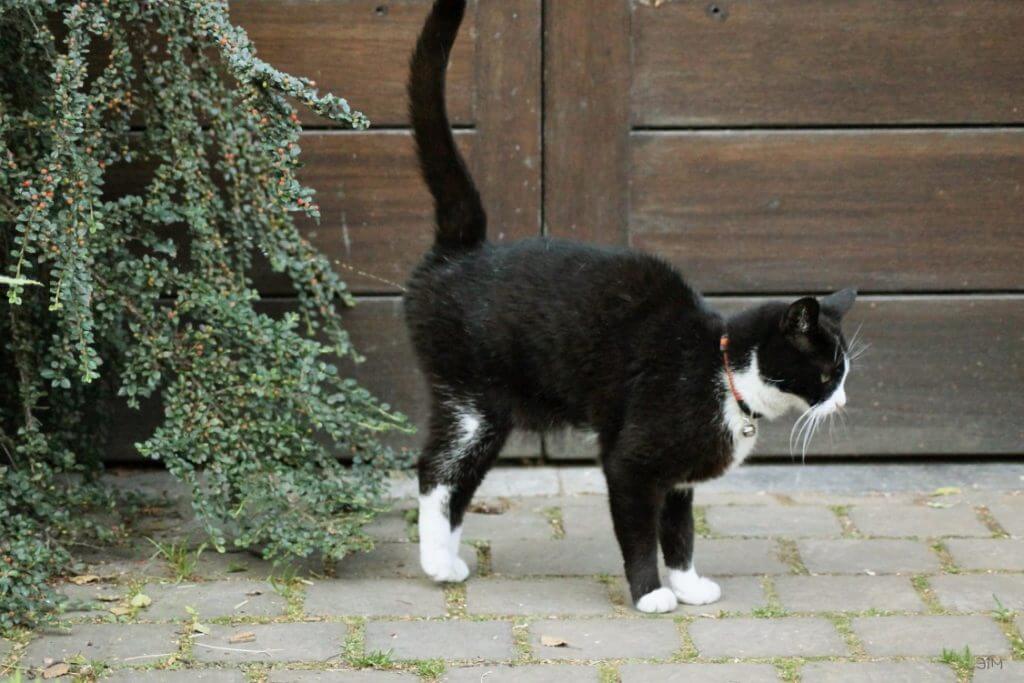This post may contain affiliate links. You can view our affiliate disclosure here.

A lot of cat owners are familiar with spraying. But what exactly does spraying mean and why do cats do this?
Let’s jump right into it and analyze it more closely.
What is cat spraying?
Cats sometimes mark their territory with their urine. One of the ways that they do this is by urinating on a horizontal surface (such as peeing on the floor to mark their territory), but other times they will spray urine on a vertical surface. This is called spraying.
Cats will back up to a vertical surface (such as a wall, door or piece of furniture), raise their tail, and squirt a little bit of urine. In the process, the cat’s tail will often quiver or shake slightly.
You may also wonder: do both male and female cats spray? The answer is yes. Spraying is not limited to one gender or another and any cat may spray to mark their territory.
Why do cats spray?
There are many reasons why your cat may spray. Here are five of the most common:
1. Illness

If your cat is suddenly changing its bathroom habits or is spraying out of nowhere, the first thing that you should do is make sure that that your cat is feeling okay.
Sometimes, a cat may spray if it has an underlying medical condition. For example, a cat may spray when it has a bladder infection because it’s feeling uncomfortable.
Other conditions, especially conditions relating to aging such as arthritis, can cause a cat to be uncomfortable going in and out of its litterbox, which may lead to it spray instead of going to the bathroom in the litterbox.
2. Disliking The Litterbox

Cats tend to be picky when it comes to their litterbox. If they don’t like it, they may go to the bathroom somewhere else.
Some things that your cat may dislike about its litterbox include the following:
- the cleanliness of the box
- the accessibility of the box
- the location of the box
- the texture of the litter inside the box
Moreover, if you have more than one cat, you may not have enough litterboxes in your home.
It is recommended that you have one more litterbox in the house than you have cats so that your cat is able to find an appropriate place to go whenever the urge hits.
3. Stress

Cats generally don’t like change, and they can get stressed out just like humans can. A cat who is feeling stressed or anxious may spray in order to help it feel more confident.
Has your cat gone through a change in its routine or lifestyle recently? A new addition to the home (such as a new baby or pet), a move, or even a scary cat in the neighborhood can make your cat feel stressed.
4. Mating
A cat who has not been neutered or spayed is more likely to spray.
If this is the cause of your cat’s spraying, it is recommended that you get it neutered or spayed as soon as possible, because the longer you wait, the greater the risk that the spraying habit will become ingrained.
5. Smell

If you find that your cat is spraying in the same spot over and over, it is likely that the scent is causing it to come back to the same place to spray there again.
Even if you can’t smell the area, your cat probably can! This is because cats have a sense of smell roughly 14 times sharper than ours.
To completely eliminate the scent where a cat sprayed, thoroughly clean the area with soap and water or with a pet-friendly urine odor remover. Do not use ammonia or bleach based cleaners because these strong smells will just attract your cat to go to that area again.
We have actually written a full guide on getting rid of cat spray smell, which you can read here.
How does neutering or spaying a cat affect spraying?
While any cat can spray (and as you have seen above, there are many possible reasons for it), the risk of a cat spraying will decrease drastically after a cat is neutered or spayed.
Veterinarians say that only around 10% of neutered male cats and about 5% of spayed female cats will continue to spray.
Are indoor or outdoor cats more likely to spray?

Most cats that are neutered or spayed will not spray indoors. This is because they’re not likely to feel the need to mark their territory.
A cat that spends time both indoors and outdoors is more likely to spray while outside. It will usually spray by bushes, fences, and other vertical objects.
This behavior is normal and is not something you need to be concerned about, but if your cat starts spraying indoors suddenly, there is likely an underlying cause behind it that needs to be addressed.
Conclusion
There are many possible reasons why a cat may spray. If your cat is spraying inappropriately, then you’ll need to take action to remedy it in addition to understanding the phenomenon.
Find out if it’s behavioral or due to a medical issue and then take the necessary steps. While it might sound like a difficult task, it is certainly achievable.
Does your cat spray? What do you think is the reason for it? Feel free to share your experience in the comments below.



